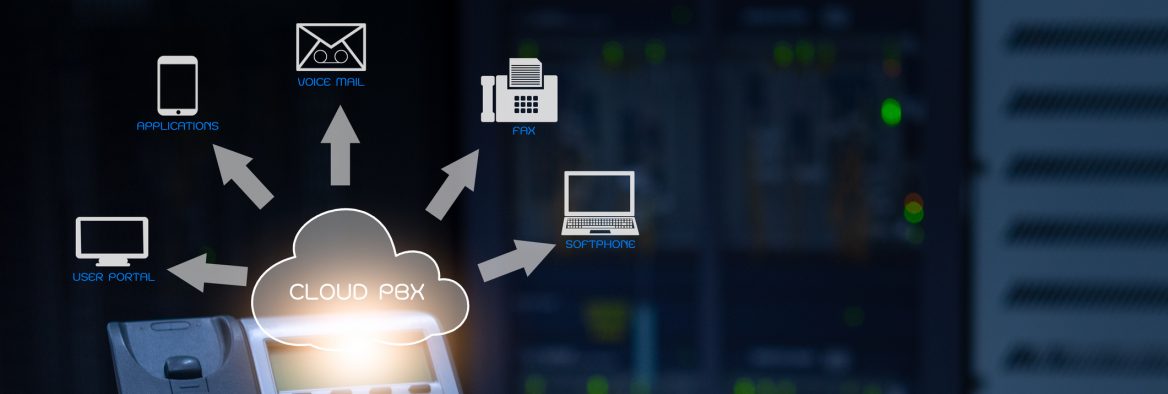 Are you considering a VOIP Phone System (cloud based phones) and are unsure how to move forward? Years ago, (mid-1990’s) a friend of mine told me that he was going to ditch the house phone and just have his family use their mobile phones as their singular means of communication. At the time, I thought he was nuts. As it turns out, he wasn’t nuts, he was just ahead of the curve.
Are you considering a VOIP Phone System (cloud based phones) and are unsure how to move forward? Years ago, (mid-1990’s) a friend of mine told me that he was going to ditch the house phone and just have his family use their mobile phones as their singular means of communication. At the time, I thought he was nuts. As it turns out, he wasn’t nuts, he was just ahead of the curve.
Download Printable Article (PDF ) >>>
Almost since its invention, telephones have been an essential part of business communication. Fast forward to the mid-1990’s businesses began replacing the traditional PBX (Private Branch Exchange) systems with VoIP (Voice over Internet Protocol) solutions by simply installing software on their servers. For the first time businesses were able to run their own phone systems. This was a seismic shift in the traditional way phone systems were set up; it meant that paying for individual phone lines or extra wiring and hardware was a thing of the past.
Fast forward again to 2022 and another seismic shift is occurring in real-time; VOIP phone systems are exposing premise-based VoIP solutions (from the mid-1990’s) as costly to implement, maintain and secure. With a cloud communications solution, these responsibilities shift to the cloud provider and on-premise equipment is now hosted in the cloud, essentially removing any future need to budge for capital expense as it relates to your phone system. Your phone system is now an operational expense – period! There are little to no upfront costs for implementation and the system is up and running quickly with no downtime.
While desk phones are still used in most cases, any internet-connected device can serve as a phone, whether it’s your smartphone, laptop, or tablet. A cloud phone system works wherever you work, whether it’s at your
desk in the office, on a tropical beach, in the middle of Central Park, or where ever your happy place is located. In addition to providing the same features and functionality as a traditional PBX, a cloud phone system allows you to easily add and remove users and features as needed.
The business case for cloud communication is so compelling that companies just aren’t installing premise-based phone systems anymore. The only question that remains involves choosing the right VOIP phone system for your organization. Here are important factors to consider when making that decision.
Why Are You Switching to a VOIP Phone System?
There could be many reasons you are choosing to switch to a cloud system, or just one. Here are a few of the most common reasons:
• You trying to reduce costs?
• Enable more flexibility for remote working?
• Allow for greater collaboration?
• Improve scalability?
• Reduce the risk of a data breach?
A cloud communication system has you covered on all these fronts and many more. The key is to determine which of these will deliver the most value for your business and develop a strategic plan that supports your goals.
What Features and Capabilities are Most Important to You?
All through the coronavirus pandemic, we have been in the trenches with small and midsize businesses, working to provide new remote workers with reliable communication and the same tools and features they had in the office. Cloud phone systems provide that consistent user experience on any device from any location.
Because the shift from office work to working remotely happen so quick, many were forced to give their personal mobile number to clients to maintain the continuity of communication, or simply not to lose a client.
Others were constantly checking their desk phone extension voice mail – not very efficient. This is a prime example of overcoming confusion and inconvenience with UCaaS (Unified Communications as a Service)
features, which allows your employees to place and receive calls on multiple devices using their desk phone number.
For example, you can answer a call placed to your desk phone on any device like your mobile phone or tablet. You never miss a call during business hours, even when working remotely, and you don’t have to juggle
multiple numbers or give out your personal number. If someone calls after hours or while you’re on another call, the voicemail-to-email feature automatically transcribes your voicemail message and emails it to you. Cloud communication has also driven the growth of Unified Communications-as-a-Service (UCaaS), which combines popular voice, video conferencing, email, text, and chat into a single cloud application. This makes it
easier for remote teams to collaborate, respond to customers, and keep projects on track. Make sure the cloud phone system you choose has the UCaaS features your remote workers need.
What Tools and Services Must Be Integrated into Your VOIP Phone System?

Cloud phone systems are often integrated with the company website and customer relationship management (CRM) system to support marketing and customer engagement strategies. If you operate a contact center, integration with your cloud phone system, UCaaS, and CRM can improve key performance metrics, increase productivity, and add flexibility.
Just as employees don’t have to be in the office to use all features of a cloud-based phone system, there’s also no need to operate a contact center in a physical location. Agents can work remotely. When a customer
calls, they’ll have instant access to a full history of interactions, and they can move from voice to text to chat without bouncing between apps. Meanwhile, calls that don’t require human involvement can be handled by an interactive voice response (IVR) system.
Different cloud phone systems can integrate with different business apps and services. We can help you choose the system that has the tools to support your business goals and the needs of your remote workers.
Is the Cloud Phone System Secure?
Cloud security has been a top concern since its inception, and monumental efforts made every day to ensure the cloud is safe & secure to conduct your business. With that in mind, the VoIP systems available today
include robust security protocols as part of their offerings as well as security monitoring by the provider to prevent attacks or misuse of services. Employing a VOIP phone system takes the ownership of security off
your plate and places it with the provider, allowing you to focus more on your business. Security specifically for VoIP communications is most commonly examined in these three important parts.
You may also need to account for compliance:
• Does the cloud provider and phone system meet your compliance requirements?
• Can they demonstrate their ability to meet today’s compliance requirements?
• Does the cloud provider have experience with your industry?
BBD Solutions can assist with getting firm answers to these questions and more before choosing a VOIP phone system.



